
As I write the introduction to this interview, “Amarrau” is playing on one of my neighbors’ speakers in Nicoya. When I open TikTok on my cell phone, in the Hispanidad Fountain, a video plays of a teenager celebrating that very song reaching 1 million views on YouTube (currently it has 3.5 million).
Kavvo is everywhere, and although he released his debut single “Amarrau” just three months ago, his sound is sweeping the music scene by leaps and bounds. A month ago, it became the most listened to Costa Rican song on Spotify and YouTube.
His real name is Sandro Herrera Manzanares and he’s just 18 years old. His stage name came from a spontaneous conversation between friends, but he has said that it doesn’t have a deep meaning.
He was born in Ciudad Quesada and lived in Guatuso, in the northern zone, for the first few years of his life. When he was 12, he moved to Tilaran and Guanacaste marked him to the point that he proudly describes himself as Tilaranean and Guanacastecan wherever he goes.
He is also the first artist to sign with Virgin Music Central America, Universal Music, one of the most important record companies in the world. In other regions, it represents artists such as Christian Nodal, 50 Cent, 6ix9ine and Iggy Pop.
He says fame doesn’t define him. He spends some time writing viral songs and the rest of his routine is like any other teenager’s. This year, he left Tilaran and moved to San Jose to study physical therapy at university and pursue his career.
I spoke with Sandro through Zoom, minutes after there was a power outage at his apartment in San Jose. For the interview, he was wearing a red sweatshirt, the one he usually wears on his Instagram Live in the early mornings.
He patiently answered questions and didn’t hesitate to joke about drinking coyol wine. The transcript is lightly edited to improve readability.
How was growing up in Guanacaste for you?
Hey, don’t kill me for this, Guanacastecans. Actually, I was born in the hospital in Ciudad Quesada but all my parents’ family, the Herreras and the Manzanares, have all always been from Tilaran. But I grew up in a town in the northern zone called La Cabanga of Guatuso. We lived there because my dad was a teacher in a little school, so I grew up there. However, every weekend I was always in Tilaran knocking down garrobo iguanas, drinking coyol wine, uh, no, that’s a lie (laughs).
When I was 12, I went to Tilaran. That’s where I started to grow musically. The Guanacaste people have always supported me a lot.
So what was your day like in Tilaran two years ago?
No, just like a kid who studied. Two years ago, I started composing, then I began to compose and upload videos to networks, some covers. I practiced soccer quite a bit, almost every day in the morning and at night. Sometimes I would go to the gym. I would get up and it was a normal day.
How does it compare to your routine now?
Ah! Now I’m a lazy bum compared to the Sandro from two years ago. I just spend time at my house. When I want to, I compose, I go, I go out like to the movie theater, to the mall… yes, I became a little lazy.
How would you describe your music to someone who woke up from a coma yesterday?
Whoa! You caught me off guard with that, jeez. I would tell him that I’ve simply been making music for quite a long time, well, not quite a long time, for a year, let’s say two years of composing. And that lately everything has been going in the best way, thank God. And how fortunate that he woke up from the coma, right? (laughs).
Do you think that living in an area outside the GMA influenced the sound you have now?
I don’t know. I’m really going to explain something to you. I feel that now, the new generation of [musicians from] Costa Rica is no longer influenced so much only in Costa Rica.
Before, artists listened a lot to artists from here. I could mention a Crypy to a Toledo.* Now we [the new generation of artists] listen to very international influences: Argentina, Venezuela, Puerto Rico. We have many, many means to find out what’s happening and how music proceeds internationally.
* Kavvo has a song with Toledo.
And does being from Guanacaste define you in any way?
Yes. The Guanacastecan people are very different from everything. The culture is very different from everything. I fed off of that culture a lot. I loved it so much that I say I’m from there. Perhaps I could have said I was from Guatuso, from La Cabanga, but I fed off of and was characterized so much by the people of Guanacaste that I say… “no, it’s Guana. I’m from Guana.”
This year you turned 18, but at the same time, you jumped to international popularity. How do you deal with coming out of adolescence and with your career?
The truth is I don’t even think about that [fame]. I focus on other things. All that about the so-called fame and the numbers and everything doesn’t interest me as much as having a clean job and a nice job. That’s what I focus the most on, making quality music and giving 100% of myself.
But social networks have greatly influenced your career…
Yes, I think it’s the recognition of the results [that the networks give you]. All of that [like comments on networks] affects the musical career of any artist in a positive way, and also negatively. If I had strength through networks before [Amarrau], now I’m going to have a lot more desire to break through, a lot more desire to write and release songs.
Is there anything that makes you proud of yourself and your story?
The truth is that right now I could applaud myself because I don’t give up. Two years ago, when I started in this music business, I made a lot of mistakes. You’re a kid in absolutely everything. So I didn’t do things so well or I did them badly, really. And that’s why I suffered a lot from teasing, bullying.
I had a very bad experience, where a girl (friend) told me right in my face, “man, why are you making music if you’re not going to get anywhere?” And it’s okay, everyone has their opinion and for me, at that moment, it didn’t even hurt and that’s why I applaud myself and give thanks, because if I had thought that at that moment and had stopped making music, things wouldn’t look the way they do now, right?
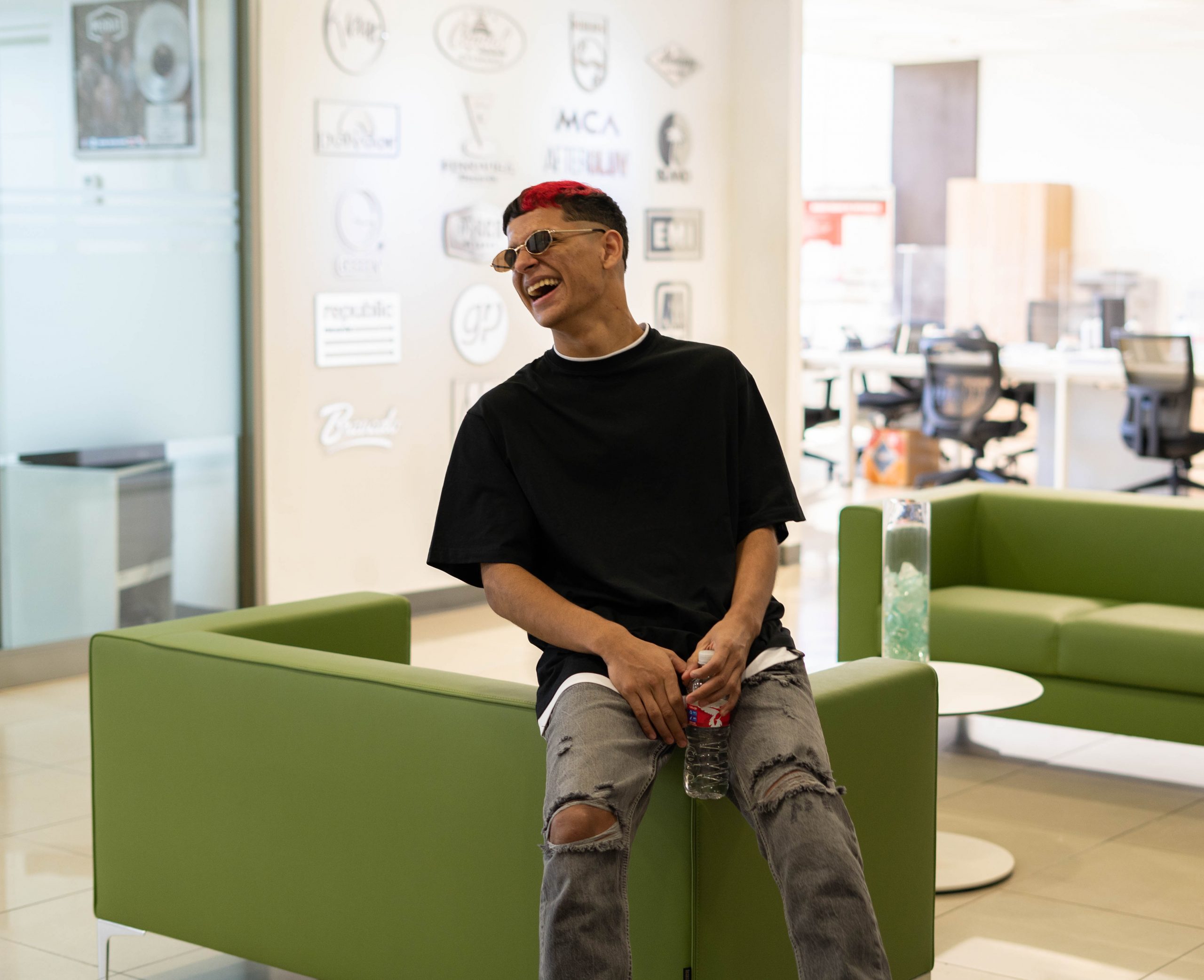
Universal Music
How does Sandro’s personality influence Kavvo’s music?
No, I don’t know. I don’t know, I really feel like Sandro and Kavvo are very different when I’m composing. In the music, then.
Why?
I don’t know what to tell you… Really, what I compose is different. For example, I couldn’t tell you, “this song is because this happened to me.” It’s never going to happen because no [I’m not inspired by my life]. Well, the only one is that I have a song that I dedicated to my brother who passed away.* So there I could tell you that one, but no, I don’t compose or write inspired by my life, nor [do I identify with] the music I make.
*His older brother, Jose Daniel Manzanares, died suddenly in February of this year. Jose Daniel was an educator, like his father, and was one of his brother’s biggest fans, according to Sandro.
Soon you’ll release new material. What was it like creating it?
[The album] was pretty funny, pretty cool. When it comes to creating music, my technique isn’t to do it all at once [writing nonstop]. It takes a lot out of me and that makes it so the emotions sometimes are there and sometimes not. I always try to compose and I love to compose when I’m good and I want to do it. I never do something out of obligation.
Sometimes I say “wow, how good to compose” and I go on a ride. So these seven songs that are coming, there are some that I composed a while ago, others last week. It’s very varied and I also like to vary rhythms a lot. You’re going to see there.
How do you imagine Sandro and Kavvo in five years?
I say hopefully continuing doing tours and making hits worldwide. Being close with my family, taking them everywhere [in the world]. Completely enjoying every moment.
Is there something you’d like to say to your Guanacastecan fans?
A total thanks to the Guanacastecan as well as the Costa Rican audience, because really the greatest relief for an artist is when the public treats them well. They’ve never treated me badly. They’ve always been there for me and they’ve always been supporting me. So, thank you very much for that.


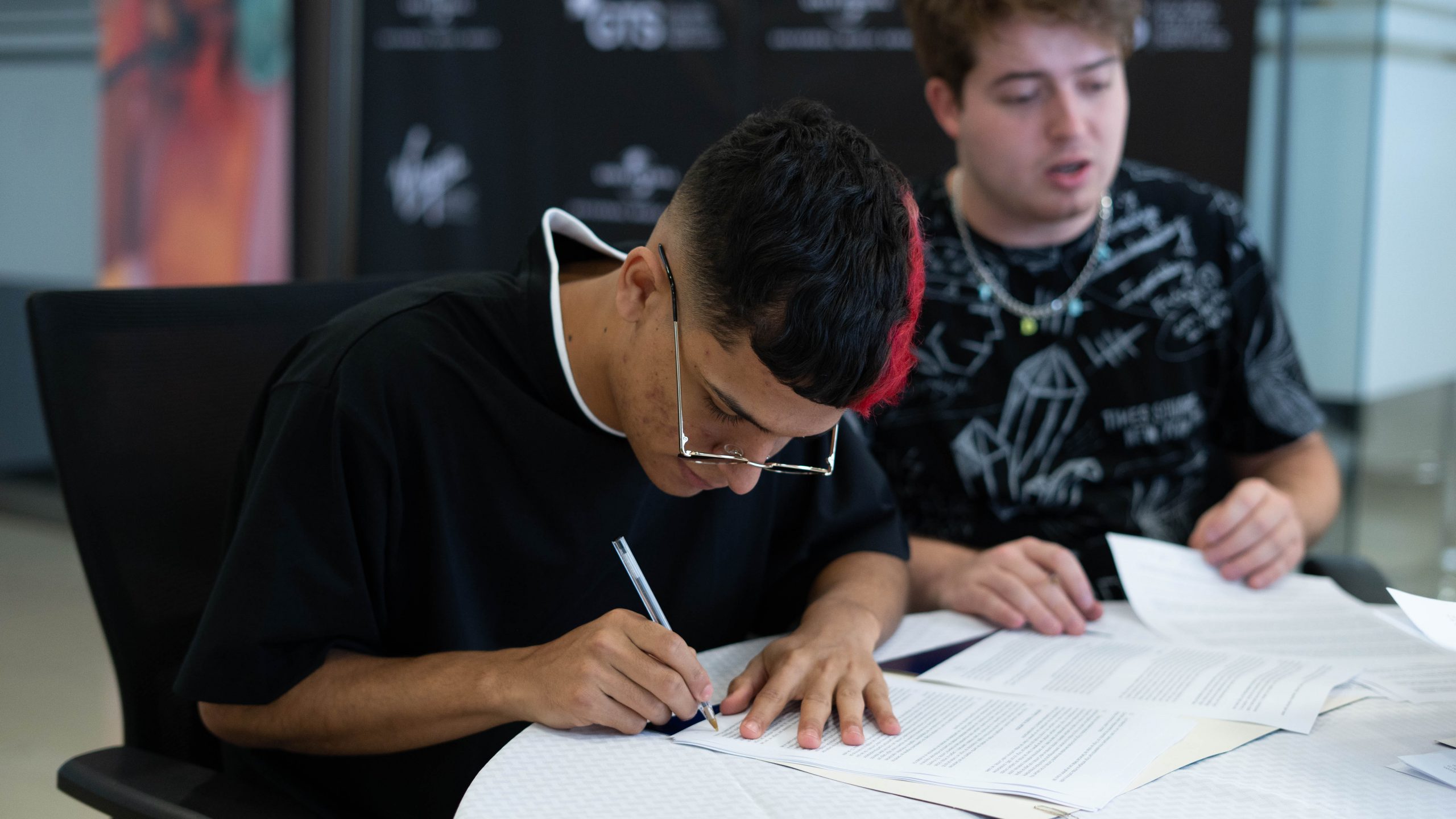
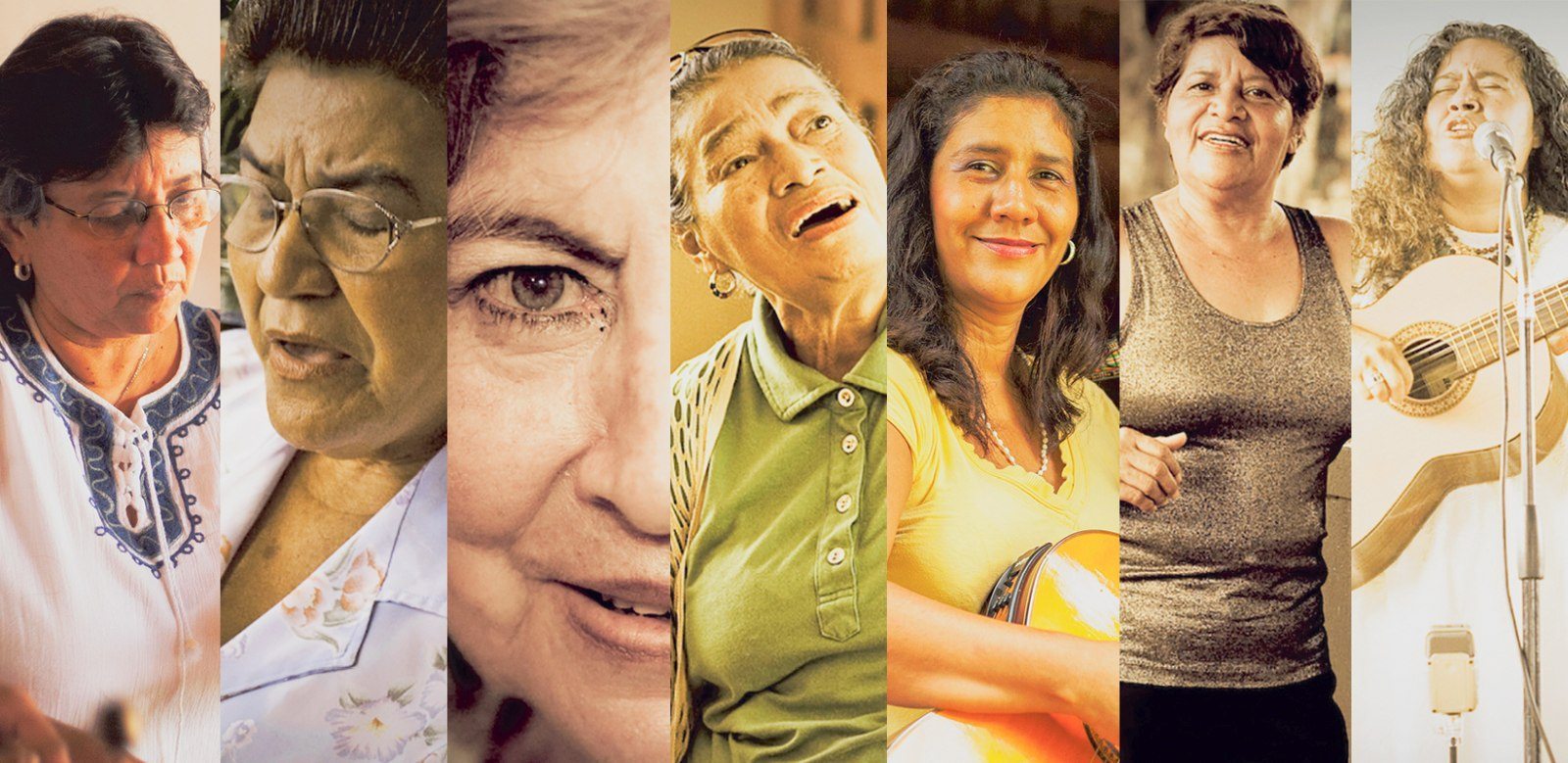
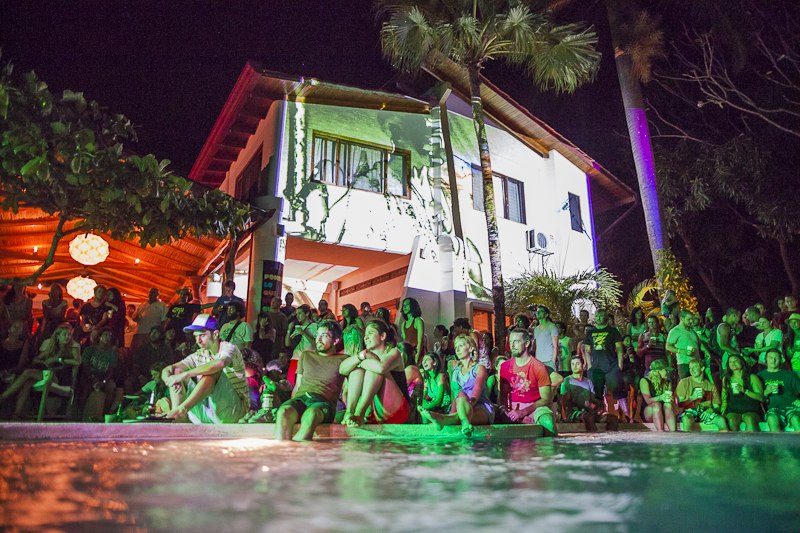
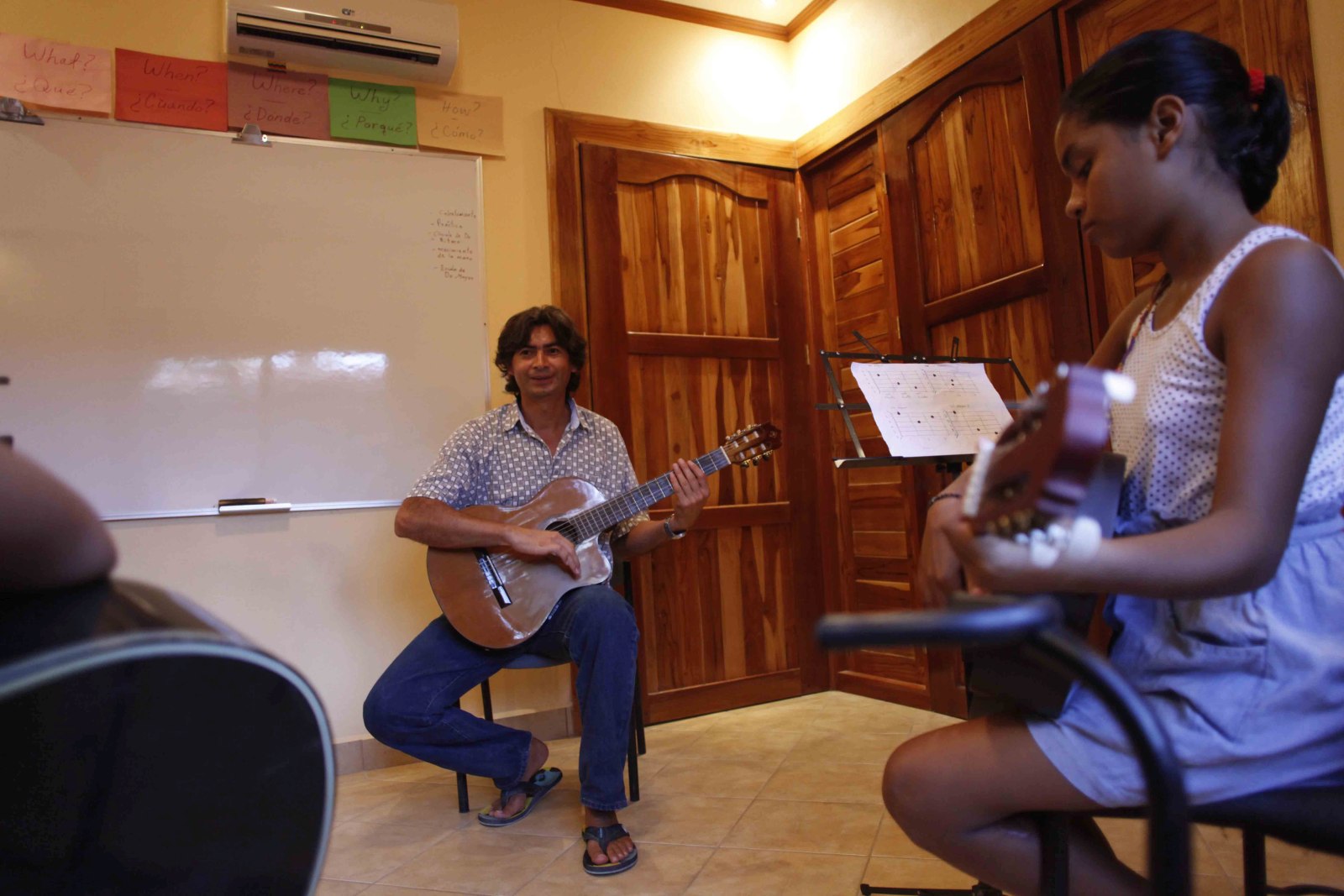

Comments